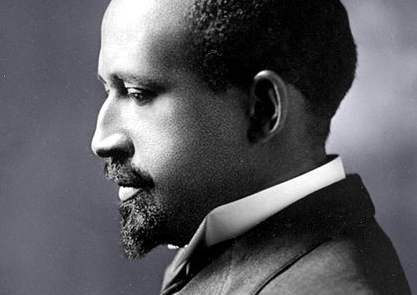
Below, W. E. B. Du Bois responds to an unknown Miss M. B. Marston regarding the place of women’s rights within civil rights activism. Here he seems to short-end Marston’s perspective, but his disownment of the movement soon changed. This same year he founded The Horizon: A Journal of the Color Line, in which the featured essays addressed the struggles of African American women. While serving as an editor of The Crisis, Du Bois dedicated a special issue to suffragettes in September 1912.
Atlanta, Ga., March 11, 1907
Miss M. B. Marston
My dear Madam:—
I thank you for your letter without date. I have given a wrong impression in my book if I have led people to believe that I want the colored people to have simply equality with other people—what I have tried to ask for is justice, treatment according to dessert and I have tried to put especial emphasis upon this. I want the colored people to have the right to develop according to their capacity and I certainly would be disappointed if they did not develop much higher things than the white race has developed to. I sympathize too with the women in their struggle for emancipation. I believe in full rights for human beings without distinction of race or sex. At the same time I hesitate to say anything concerning women’s rights because most women in the United States are so narrow that anything I should say would be misinterpreted. The Negro race has suffered more from the antipathy and narrowness of women both South and North than from any other single source. While then I should be very glad to say any word which I was sure would help, I do not at present see that there is much chance for me to help in your cause. I wish it however, the greatest success.
Very sincerely yours,
W. E. B. Du Bois
From The Correspondence of W. E. B. Du Bois, Vol. I. Edited by Herbert Aptheker. Boston: University of Massachusetts Press, 1973.


